Just now
By Angie Brown, BBC Scotland, Edinburgh and East reporter

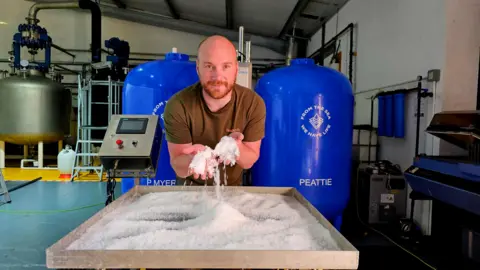 Darren Peattie
Darren Peattie
Darren Peattie put everything into his dream of building a sea salt company
When Darren Peattie decided to revive the 200-year-old salt harvesting industry in a Fife coastal village he was "absolutely terrified of failing".
The father-of-two had bought £300,000 worth of equipment including a huge salt pan and hired a factory in the quaint East Neuk village of St Monans.
The 41-year-old had put everything into his dream, working all hours and sleeping in his factory to keep an eye on all the dials and gauges monitoring pressure and brine levels.
But Darren's punishing work schedule and the conditions in the factory took a terrible toll on his health.
After months of surviving on 20-minute power naps on the factory floor his heart started palpitating wildly, he felt out of breath and dizzy.
He was taken to hospital by ambulance where they told him he had developed a heart condition called atrial fibrillation - an irregular and often very rapid heart rhythm.
Darren was told that the constant 45C heat of the factory and the extremely salty air was damaging his heart but after being given three bags intravenous fluids he returned to work.
The extreme heat and the salt in the atmosphere meant Darren continued to be dehydrated - suffering more episodes where his heart "was going bonkers".
The second time he was taken to hospital the doctor took his bloods and said: "It's like you have been in the desert for a month."

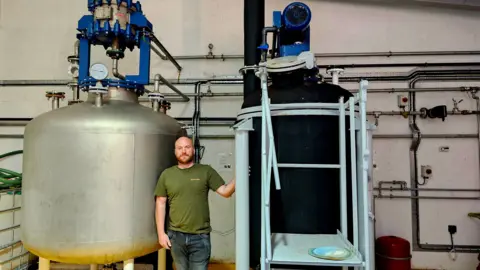 Darren Peattie
Darren Peattie
Darren Peattie spent £300,000 on equipment to start The East Neuk Salt Company
Darren was given three more bags of fluids, which put his heart into its normal rhythm.
"He let me go but I didn't learn and I kept on working and sleeping in the factory," he said.
He was rushed to hospital for a third time.
"I was dizzy and breathless and I thought I was going to die," he said.
"I thought 'this is it but I have a big order to get out of bespoke whisky sea salt'.
"I had a company expecting a big American order so I got to the hospital and said 'It's ok just give me the fluids and I'll be out of your hair'.
"She took my bloods and said 'Right, we will start with seven bags of fluids'."
'Worst pain ever'
After 12 hours his heart was still beating rapidly.
Darren said he was given a drug that works directly on the heart tissue to slow the nerve impulses and keep his heart rhythm normal.
"It's the worst pain ever," he said. "All my veins went black and then the next thing I was out cold. It jump-starts you, basically.
"I finally went back into a normal rhythm and I said 'right, I need to get back because I have work to do'.
"The cardiologist took me aside and said 'Do you realise how lucky you are? You should not be walking out of here'."
Darren is now on a daily does of a drug to treat serious - possibly fatal - irregular heartbeats.
Surgeons are planning to operate to give him a catheter ablation - a procedure involving guiding a tube into the heart to destroy small areas of tissue that may be causing an abnormal heartbeat.
"The doctor said the dehydration has adjusted the structure of the electrical signals in my heart," he said.
"That's because I slept in the factory, which was boiling and breathing in salty air.
"I would wake up in the mornings and I would feel like I was in the desert and I would rush straight to the tap to get water down me."

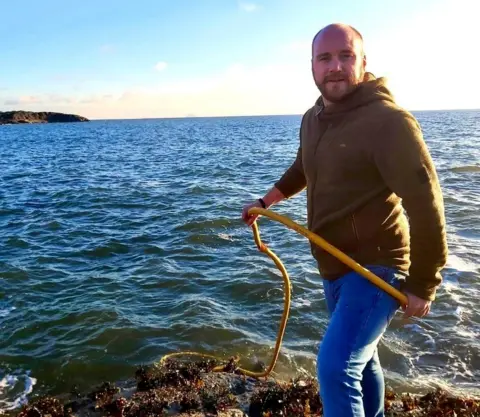 Darren Peattie
Darren Peattie
Darren Peattie takes 6,000 litres of sea water and evaporates it - leaving salt crystals behind
Ruth Goss, senior cardiac nurse at the British Heart Foundation, said severe dehydration could cause heart and circulatory system problems.
"When you are dehydrated, there is less blood travelling around the body," she said.
"This can lead to low blood pressure, dizziness and fainting.
"In response, the heart may start beating faster to help move blood around the body and this can lead to palpitations.
"Dehydration can also thicken the blood, increasing the risk of blood clots and heart attacks.
"At the same time, high temperatures mean that your body has to work harder to keep its core temperature to normal levels, and this puts extra strain on your heart, lungs and kidneys."

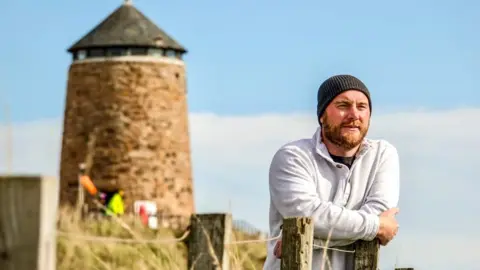 Bill Bruce
Bill Bruce
Darren Peattie has stopped sleeping in his factory in East Neuk in Fife
Mr Peattie said the pressure of running a salt factory on his own had caused him to become a workaholic.
Now, although he still works seven days a week and never goes on holiday, he only does emails during the night, which he can do from his house.
"When you take on something like this, when you know it's come out of an idea and ends up reality, you don't want to fail so you have got to slog your guts out," he said.
"This salt company has been a massive struggle, it's nearly swallowed me up financially twice.
"The average person would not have done what I have done.
"But I've done it and I've got to live with it and I've got to make sure it's a success.
"That's my driver, I'm absolutely terrified of failure."
Two years on since launch, his East Neuk Salt Company is producing up to six tonnes of salt a month and distributing it around the world.
He collects 6,000 litres of salt water from the Firth of Forth and uses the distilled water which is the by-product to make mineral water.
Darren said: "My wife would come into the factory and say 'You're going to kill yourself' or 'this is getting out of hand'.
"But I think she is the only one who understands me and now she leaves me to it."

 4 months ago
68
4 months ago
68



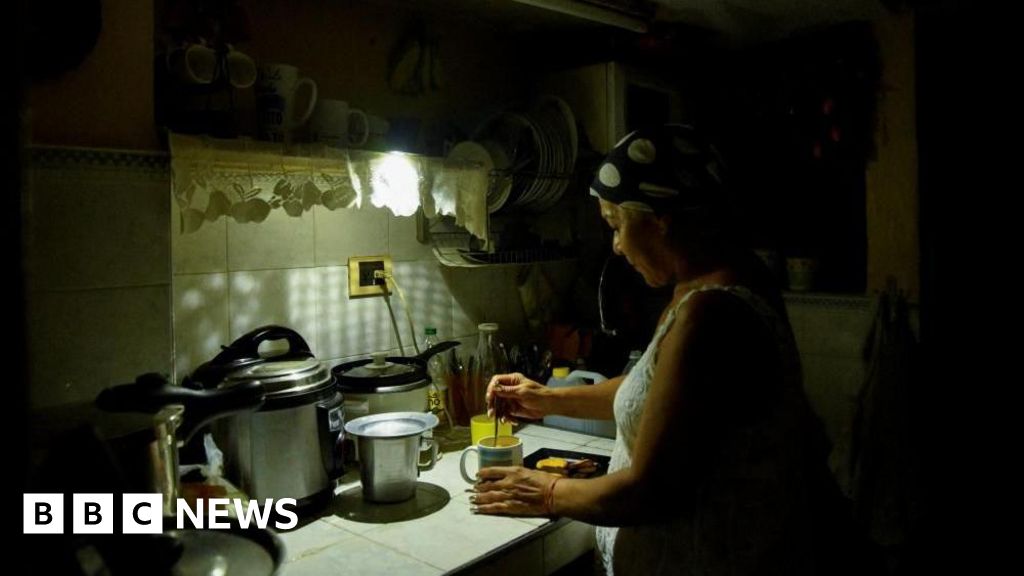











 English (US) ·
English (US) ·